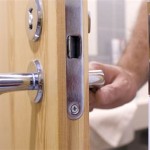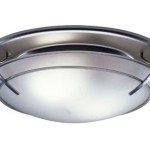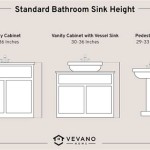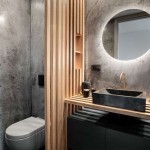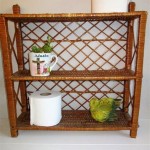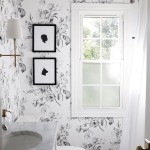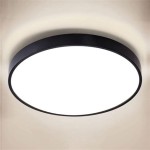Shower Enclosures: Maximizing Space in Small Bathrooms
Small bathrooms present unique design challenges. The need to incorporate essential fixtures, such as a toilet, sink, and shower, within a limited footprint requires careful planning and strategic product selection. Shower enclosures, in particular, play a crucial role in the functionality and overall aesthetic of a small bathroom. Choosing the right shower enclosure can transform a cramped space into a more open and inviting area, while also preventing water damage and enhancing the room's visual appeal.
The selection process involves considering various factors, including the available space, bathroom layout, budget, and desired aesthetic. Different types of shower enclosures cater to different spatial constraints and design preferences. Materials, sizes, and configurations all contribute to the suitability of an enclosure for a particular small bathroom environment. Furthermore, proper installation and maintenance are essential for ensuring the longevity and performance of the chosen shower enclosure.
Key Considerations When Selecting a Shower Enclosure
Before purchasing a shower enclosure for a small bathroom, several key considerations should be addressed. These considerations involve meticulous measurements, budget analysis, and an understanding of the various enclosure types available. Ignoring these preliminary assessments can lead to costly mistakes and dissatisfaction with the final bathroom design.
1. Accurate Measurements: The most crucial step is to accurately measure the available space. This involves measuring the shower area's width, depth, and height. Account for any obstructions, such as pipes, windows, or existing fixtures. It is advisable to create a scale drawing of the bathroom layout to visualize how different enclosure options will fit within the space. These precise measurements ensure that the chosen enclosure will seamlessly integrate into the bathroom without compromising functionality or aesthetics.
2. Budget Allocation: Shower enclosures range in price depending on their size, material, and design complexity. Establishing a realistic budget beforehand will help narrow down the options and prevent overspending. Consider not only the initial purchase cost but also the installation fees, which can vary depending on the complexity of the installation process. Factor in potential costs for modifications to plumbing or tiling, if necessary.
3. Enclosure Types and Space Optimization: Familiarize oneself with the different types of shower enclosures suitable for small bathrooms. Each type offers varying degrees of space-saving benefits and aesthetic appeal. The primary considerations are the door mechanism (sliding, pivoting, or folding) and the overall shape of the enclosure (square, rectangular, or curved). Carefully evaluate each type's advantages and disadvantages in relation to the available space and desired bathroom design.
Types of Shower Enclosures Suitable for Small Bathrooms
Numerous shower enclosure types are designed to maximize space in small bathrooms. Each type leverages different design principles and door mechanisms to create a functional and aesthetically pleasing showering environment. Understanding the characteristics of each type is critical for making an informed decision.
1. Sliding Shower Doors: Sliding shower doors, also known as bypass shower doors, are an excellent option for small bathrooms where space is limited. These doors slide horizontally along tracks, eliminating the need for extra space to swing open, which is essential in a confined area. They are typically constructed from glass panels encased in metal frames, providing a sleek and modern look.
The primary advantage of sliding shower doors is their space-saving design. They do not require any additional clearance for door swing, making them ideal for bathrooms with limited floor space. Furthermore, they are relatively easy to install and maintain. The sliding mechanism can be prone to collecting debris, requiring occasional cleaning to ensure smooth operation. The overlap between the sliding panels can also make cleaning the inside of the glass slightly challenging.
2. Pivot Shower Doors: Pivot shower doors hinge on one side and swing open into the bathroom. While they require some clearance for the door swing, they can still be a viable option for small bathrooms if strategically positioned. Many pivot shower doors feature a minimalist design with frameless glass panels, creating a more open and airy feel in the bathroom.
The advantage of pivot shower doors is their simple and elegant design. They offer a wide opening for easy access to the shower area. However, their primary disadvantage is the space required for the door to swing open. This can be problematic in very small bathrooms where every inch of space is valuable. Proper planning and careful positioning are crucial for successfully incorporating a pivot shower door in a small bathroom.
3. Folding Shower Doors: Folding shower doors, also known as bi-fold shower doors, consist of multiple panels that fold inward when opened. This design minimizes the space required for door swing, making them a practical choice for very small bathrooms. They are available in various styles and materials, including glass and acrylic.
These doors offer a significant space-saving advantage. They fold neatly against the shower wall when open, maximizing the available floor space. Folding shower doors can be more complex to install than sliding or pivot doors, and the folding mechanism may require more maintenance. The multiple panels can also create more seams, which can be prone to water leakage if not properly sealed.
4. Corner Shower Enclosures: Corner shower enclosures are designed to fit snugly into a corner of the bathroom, making them an efficient space-saving solution. They typically feature a curved or angled front, maximizing the showering area while minimizing the footprint in the bathroom. Corner enclosures are available in a variety of sizes and styles, with different door configurations, including sliding and pivoting options.
The advantage of corner shower enclosures is their efficient use of corner space. They can create a more spacious showering area in a small bathroom by utilizing an otherwise underutilized corner. However, corner enclosures can sometimes feel cramped, especially if the dimensions are too small. Careful consideration of the size and shape is essential to ensure a comfortable showering experience.
5. Walk-In Showers with Glass Panels: Walk-in showers offer a minimalist and modern aesthetic, and they can be adapted for small bathrooms using strategic placement of glass panels. Instead of a fully enclosed enclosure, a single glass panel or a combination of panels can create a partial barrier, preventing water from splashing outside the shower area while maintaining an open and airy feel.
Walk-in showers with glass panels offer a sleek and contemporary look. They are easy to access and clean. The primary disadvantage is that they may not provide as much privacy or protection from drafts as a fully enclosed shower. Careful design and placement of the glass panels are crucial to minimize water splashing and maintain a comfortable showering environment. A slight slope on the shower floor towards the drain is also necessary to prevent water from escaping.
Materials and Aesthetics for Small Bathroom Shower Enclosures
The choice of materials and the overall aesthetic of the shower enclosure significantly impact the look and feel of a small bathroom. Opting for the right materials can enhance the sense of space, improve functionality, and contribute to the overall design coherence of the room. Considerations include the type of glass, frame materials, and hardware finishes.
1. Glass Types: The type of glass used in a shower enclosure affects the amount of light that enters the shower, the level of privacy it provides, and the overall aesthetic. Clear glass offers a minimalist and modern look, allowing maximum light transmission and making the bathroom feel more spacious. However, it provides minimal privacy. Frosted glass offers increased privacy while still allowing some light to pass through. It can be a good option for bathrooms where privacy is a primary concern. Textured glass adds visual interest and provides a degree of privacy. Different textures, such as rain glass or patterned glass, can enhance the overall aesthetic of the bathroom.
2. Frame Materials: The frame material of the shower enclosure influences its durability, style, and maintenance requirements. Aluminum frames are lightweight, durable, and resistant to corrosion. They are available in a variety of finishes, including brushed nickel, chrome, and oil-rubbed bronze. Stainless steel frames are highly durable and resistant to rust and corrosion. They offer a sleek and modern look. Frameless shower enclosures eliminate the need for frames altogether, creating a minimalist and seamless appearance. They typically use thicker glass for added stability and require professional installation.
3. Hardware Finishes: The hardware finishes, such as handles, hinges, and door pulls, contribute to the overall aesthetic coherence of the shower enclosure and the bathroom. Choosing finishes that complement the other fixtures and accessories in the bathroom is essential. Options include chrome, brushed nickel, oil-rubbed bronze, and matte black. Chrome offers a classic and timeless look. Brushed nickel provides a softer and more subtle appeal. Oil-rubbed bronze adds warmth and a touch of elegance. Matte black offers a modern and sophisticated aesthetic.
In summary, selecting the right shower enclosure for a small bathroom requires careful consideration of space constraints, budget limitations, and desired aesthetic. By understanding the different types of enclosures available, considering the materials used, and prioritizing proper installation, it is possible to create a functional and visually appealing showering environment that maximizes the limited space available.

The Best Shower Enclosures For Maximising Space In Small Bathrooms

Small Bathroom Glass Enclosure Shower Stall With 2 Hinged Doors

Shower Enclosures For Small Bathrooms Bathroom Mountain

Best Shower Enclosure For Small Bathroom

Shower Stalls For Small Bathrooms Showers Spaces

Cornerview Sliding Shower Enclosure Dreamline

Top Corner Shower Stall Designs For Small Bathrooms Ace Decor Bathroom

Best Shower Enclosure For Small Bathroom

What Shower Unit To Choose For A Small Bathroom

Shower Enclosure Ideas For Modern Bathrooms
See Also
